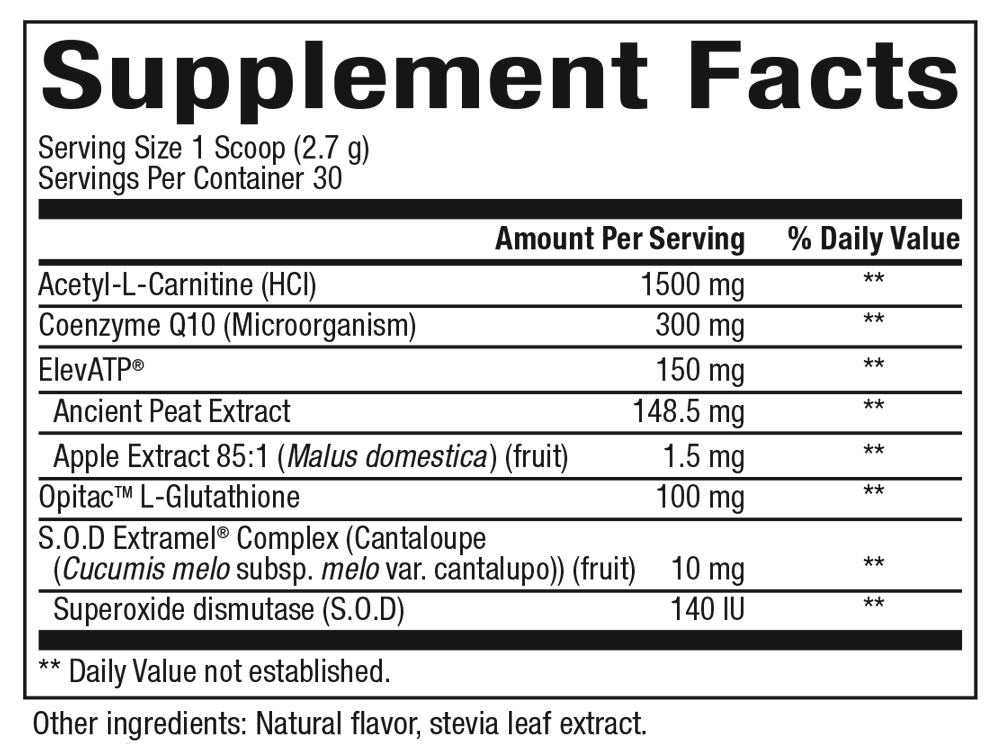
Supports ATP Production*
2.54 oz ( SKU: 9272U )
Supplement Facts:

Dosage:
Suggested Usage: Dissolve 1 heaping scoop (2.7 g) per day in 8 oz of water or as directed by a health care professional.
Allergens:
Contains no artificial colors, preservatives, or sweeteners; no dairy, sugar, wheat, gluten, yeast, soy, corn, egg, fish, shellfish, salt, tree nuts, or GMOs. Suitable for vegetarians
